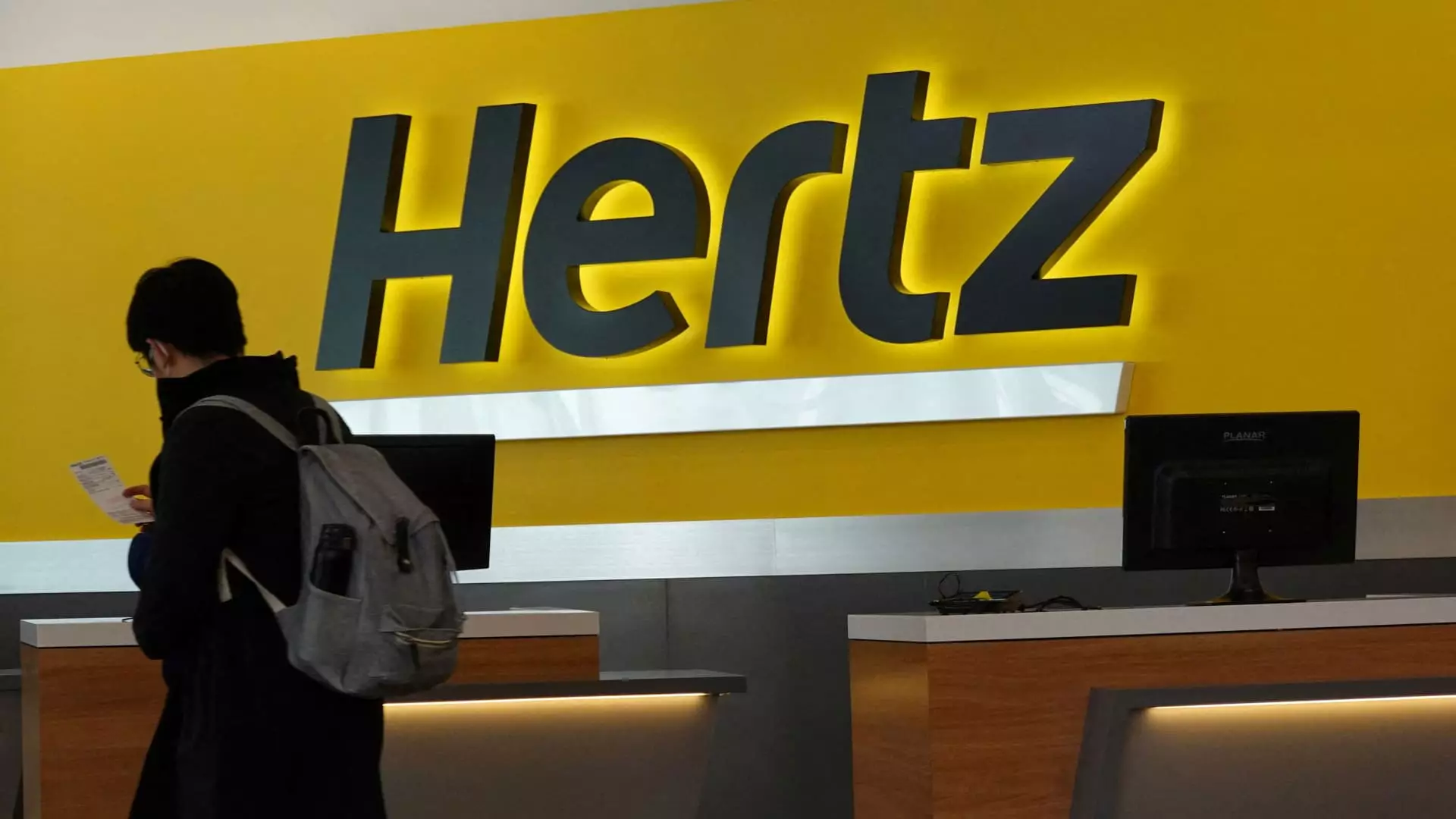In a stunning turn of events, Hertz Global Holdings recently announced abysmal first-quarter earnings that left shareholders reeling. With the rental car company reporting a staggering $1.12 adjusted loss per share—significantly underperforming the anticipated $0.97 loss—investors found themselves greeted with grim news. The response was swift; shares plummeted by more than 20% during early trading, ultimately closing down nearly 17%. This dramatic fall is not just a reflection of poor performance but an echo of deeper issues resonating within the rental car industry.
The company’s decision to initiate a $250 million stock offering only intensified investor anxiety. While Hertz’s CFO Scott Haralson put on a brave face, articulating efforts to deleverage and improve earnings, investors sensed the underlying desperation in the company’s moves. This stock offering might be aimed at shoring up immediate financial stability, but it speaks volumes about a company struggling to regain its footing amid a rapidly changing marketplace.
Economic Forces at Play
The dismal performance isn’t merely a result of poor management; broader economic factors are at work as well. Hertz, alongside many competitors, has faced reduced consumer sentiment that has translated into decreased travel bookings. The enduring effects of President Trump’s auto tariffs have further complicated matters, inflating vehicle prices, which in turn affects rental rates. Companies like Hertz are being backed into a corner, needing to balance fleet management while being pressured by market conditions that often feel beyond their control.
With the tourism industry still grappling with the lingering effects of the pandemic, the rental car sector finds itself in a precarious position—one where potential revenues are uncertain at best. As CEO Gil West noted, the strategy has turned towards “prioritizing fleet and cost actions,” clearly indicating that maximizing operational efficiency is the only viable path forward. However, when paired with the decision to reduce fleet sizes, this approach raises more questions than it answers.
Plausibility of a Recovery Plan?
Hertz’s “Back-to-Basics Roadmap” might sound promising, especially with goals like decreasing depreciation per unit and boosting operating efficiencies. Yet, the reality is that this plan may simply serve as a cosmetic fix rather than a route to genuine recovery. The company is betting on creating “more demand than we can satisfy,” but given the current economic landscape, one must question the feasibility of this ambition.
The reduction in fleet capacity while simultaneously striving to increase demand is a contradictory strategy that could further alienate the very consumer base that Hertz relies upon. While the company has touted achievements, including a $92 million improvement in operating expenses, the overall revenue fell 13% year-over-year. This contradiction speaks to a company that may be focused more on surface-level metrics rather than holistic improvement.
The Shadow of Investor Sentiment
Amidst its financial distress, Hertz has also fostered a somewhat toxic relationship with investor sentiment. Days before the grinding earnings call, the stock had soared by 90% throughout the year, largely due to Bill Ackman’s Pershing Square Capital Management taking a substantial position in the company. However, with aftershocks from this disappointing report, even Ackman’s influence can’t shield Hertz from an impending crisis. Analysts like Barclays’ Dan Levy have begun signaling that despite Hertz’s accelerated transition efforts, the looming risk to demand is significant, suggesting a future that looks quite bleak.
In essence, Hertz’s recent turmoil serves as a cautionary tale. The company’s journey underscores a critical junction for the rental car industry at large, which is wrestling with not just its internal struggles but also external factors that hinder stability. While management may aim for a calculated recovery, it seems increasingly clear that the situation is spiraling into a far more complex issue that warrants a more formidable response than they are currently equipped to deliver. Hertz’s future hangs precariously in the balance, and as each day passes, it seems that both investors and consumers will have to grapple with the unsettling ramifications of this predicament.

Leave a Reply